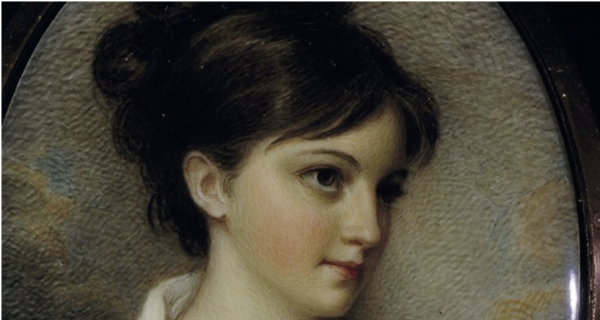Independence is all I wish, and a little will make us that.
[Eliza Lucas Pinckney, 1779]
Eliza Lucas was 16 years old when she took over the management of her family’s three plantations in South Carolina. She had been dead for almost 200 years when she became the First Woman inducted into the South Carolina Business Hall of Fame.
Eliza Lucas was born in Antigua in the West Indies where her father was a British military officer. She was educated in England where she conquered French and music, appropriate subjects for a young woman from an affluent family. It was botany, however, that she found most intriguing. “I love the vegetable world extremely,” she told her father.
Unrest between England and Spain prompted her father to move his family to South Carolina, where he hoped his daughters and wife would be safe. His wife had been ill and he hoped this move also might be beneficial to her health, but she subsequently died.
When her father was called back to duty in Antigua to serve as lieutenant governor, he placed his eldest child, Eliza Lucas, in charge as his sons were studying in England. She was sixteen.
Lucas’s father sent her some indigo seeds from Antigua and she attempted to grow them; indigo was rare, but highly valued. Its use for creating a rich blue dye made it profitable. The first year, frost decimated the crop. The second year was not much better, but Eliza Lucas managed to get enough seeds to replant a successful third crop. This was fortuitous, as England was now at odds with France, and France prohibited the exportation of indigo seeds to the colonies.
In Charleston, South Carolina, the yield for the initial indigo crop was about 5,000 pounds per year. Due to Eliza Lucas’s experimentation with the plants, the crop prospered and within a few years that area of the nascent country was exporting 130,000 pounds per year.
At 22 years of age, in 1744, Eliza Lucas was considered a spinster when she married the first native-born lawyer in the Carolinas, Charles Pinckney. Her father granted the couple one of his plantations as a wedding gift. Charles Pinckney was a politician who traveled extensively, leaving his wife, the entrepreneurial plantation manager, in charge.
In 1753, the Pinckneys moved to London where her sons and daughter were educated. After they returned to South Carolina in 1758, Charles Pinckney died of malaria and Eliza Lucas Pinckney was once again solely responsible for the plantation.
During the American Revolution the British destroyed her property and ruined her financially. Perhaps the destruction of her property was simply one of the results of the effects of war, an example of war’s power for changing the lives of women and children. But, perhaps the British knew that her property added to the nascent country’s prosperity, or perhaps the action was related to her sons’ activities, as they were major players in the American Revolution. One son even signed the Constitution. Later another was an ambassador who negotiated a treaty for navigation rights on the Mississippi that bears the Pinckney name. Both sons ran for vice president at one point in each of their careers.
Pinckney continued her agricultural experiments until she was diagnosed with cancer and moved to Philadelphia for care in 1793. She was widely recognized for her role in enriching the colonies, both with her business acumen and her offspring. When she died, George Washington was one of Eliza Lucas Pinckney’s pallbearers.

